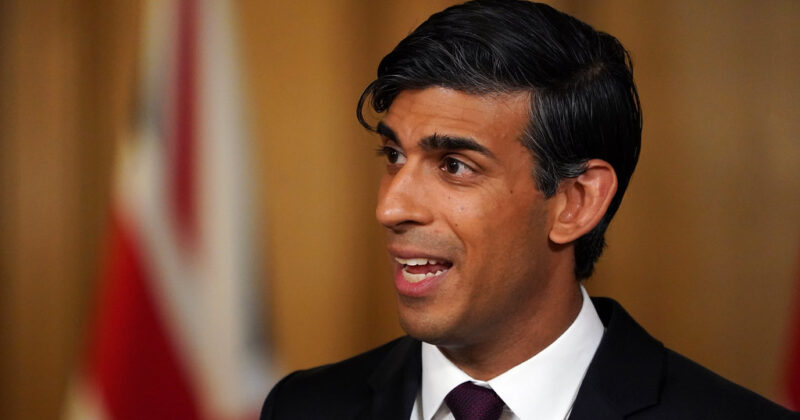Scrap the Tories' hospital closure clause
By Dara O’Cogaidhin
The Save Lewisham Hospital Campaign brought about one of the most significant defeats for this government to date – a judicial review in July ruled the government’s decision to close the hospital as unlawful. This was following months of mass protests and campaigning work within the community.
But before the appeal could even be heard, the Tories tabled an amendment to the Care Bill in the House of Lords that would legitimise the decision to close Lewisham Hospital. A new clause was inserted by Health Secretary Jeremy Hunt after he was deemed to have acted beyond his powers in trying to cut the hospital A&E and maternity services.
Clause 119 (renumbered from Clause 118) of the Health and Social Care Bill, dubbed the “Hospital Closure Clause” by campaigners, would give the Health Secretary unprecedented powers to impose fast-track closures and downgrade any hospital, regardless of how well it is performing and even if local people and staff disagree. The clause would strip away protections that allowed Lewisham Hospital campaigners to overturn the closure.
The new legislation would allow the government-appointed Trust Special Administrator (TSA), who takes over a financially failing NHS trust, to make recommendations to reconfigure services that affect providers across the whole region. Under the TSA regime, recommendations can be made and submitted to the Health Secretary for agreement through a deliberately speeded up process with minimal consultation with commissioners, staff, patients or the wider community. The usual requirement for plans to go through local authority panels will be scrapped, as is the commitment for Clinical Commissioning Groups (CCGs) to consult the population they serve.
One reason why NHS campaigners are so fearful of these new powers is that there is a very real chance that increasing numbers of hospitals may come under its remit, as financial pressures on trusts increase. In its last Quarterly Monitoring Report, the King’s Fund found that 30 per cent of non-foundation trusts and 11 per cent of foundation trusts are planning a deficit for this financial year. These NHS trusts are deemed to be “failing” due to unaffordable private finance initiative (PFI) debts.
Dr David Wrigley from the British Medical Association is no doubt about Clause 119’s menacing potential:
“It means no hospital in England is safe. It allows the closures of hospitals if it suits the higher powers and the main reasons may well be financial when it should be a clinically based decision. It’s effectively a hospital closure cause; it’s an affront to democracy.”
Privatisation
Clause 119 amounts to privatisation via the backdoor and threatens the provision of medical services. The fundamental principles of the NHS, as a public provider of free universal healthcare, are under sustained attack. In the past two years £11 billion worth of the NHS has been put up for sale, a third of NHS walk-in centres have been closed, 10 per cent of A&E units have been shut and over 35,000 staff has been axed. The Health and Social Care Act has given foundation trusts the “freedom” to expand their private patient services to as much as 50 per cent of their income; one in eight has already opened up new private treatment facilities since the legislation was passed.
By opening every corner of the NHS to “any qualified provider”, private consortia will cherry-pick hospitals services in search of profits. Clinical commissioning groups are forced to tender for services, with contracts going to private companies that undercut the NHS and provide services as “loss leaders” to get a foothold in the healthcare market. Control of the health service is being handed to unaccountable private firms whose modus operandi is to maximise profit, not serve patients.
The Labour Party, which aggressively pimped PFI projects and foundation trusts to encourage “competition” while in power, has pledged its opposition to Clause 119. It has also promised to repeal the Health and Social Care Act if returned to power. However, the EU has just passed new rules on public sector procurement. The launch of the Transatlantic Trade and Investment Partnership (TTIP) last year will give the Act international legal backing and set the shift to privatisation in stone. Once it is made law, privatisation will be irreversible.
Scrap Clause 119
Roughly 150 people attended a demonstration against Clause 119 outside Parliament on 27 February and over 130,000 people have signed an online petition calling for it to be scrapped from the Care Bill. While this opposition is welcome, we can’t rely on lobbying to knock the government back. Trade unions and NHS campaigners need to draw the necessary lessons from the successful struggle to keep open Lewisham Hospital. An organised campaign, including strike action, is needed to stop the dismantling and privatisation of the NHS.
The leadership of the unions has so far refused to initiate any industrial or direct action to save what remains of the NHS. Both Labour and Tory parties have played their part in undermining the NHS, but the union leadership remains committed to a strategy of “waiting for Labour”.
We can’t afford to wait. We need to organise the rank and file across the unions to take control and deliver action with the union leaders where possible, but without them where necessary. The TTIP, which outlaws any reversal of policy in privatisation, underlines why the left also needs to develop a consistent international socialist alternative to the pervading ideology of the market in our healthcare systems.







